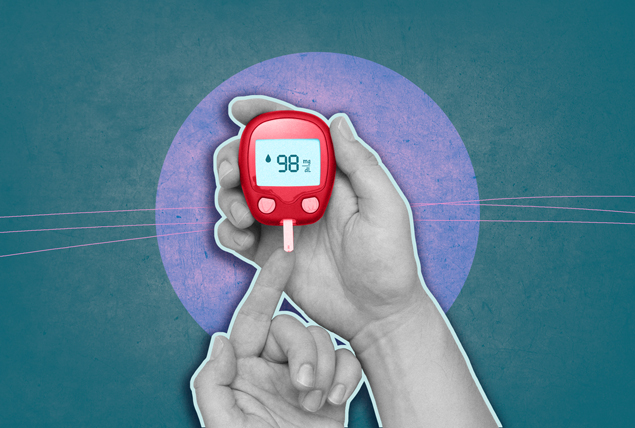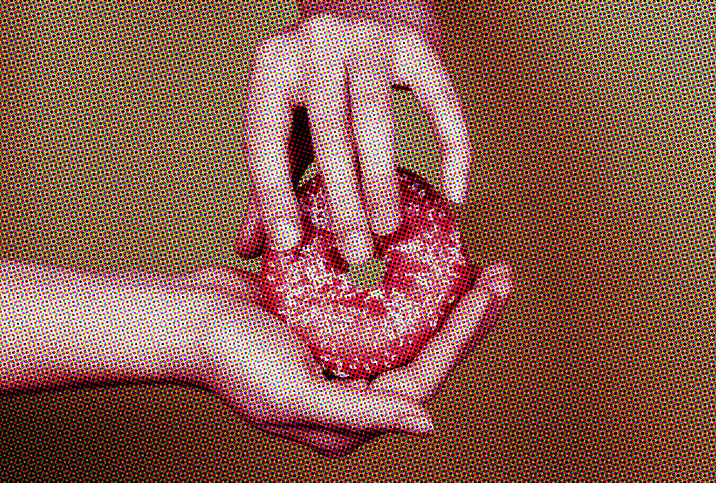Know the Risk Factors and Symptoms of Hypoglycemia

Key Points
- For people with diabetes, the risk factors of hypoglycemia are generally the medications that are being used to treat their condition.
- The most common symptoms of hypoglycemia are feelings of weakness, drowsiness, dizziness and confusion.
- Hypoglycemia is not a difficult diagnosis because it typically presents with diabetes. It's a completely different situation in people without diabetes.
Low blood sugar, or hypoglycemia as your doctor will call it, happens when your blood sugar or glucose drops below the range that's healthy for you. For people who have diabetes, the rate is different than for people who don't.
If your glucose level drops too low, it can be a dangerous condition requiring emergency medical attention.
What is hypoglycemia?
Hypoglycemia is common in people with diabetes, particularly people with Type 1 diabetes. People with or without diabetes can have low blood sugar.
For people with diabetes, their blood sugar is considered low when it drops below 70 milligrams per deciliter (mg/dL).
There are different definitions of hypoglycemia depending on whether or not the patient has diabetes, said Nestoras Nicolas Mathioudakis, M.D., M.H.S., associate professor of medicine and co-medical director of the Diabetes Prevention & Education Program at the Johns Hopkins School of Medicine, based in Lutherville, Maryland.
"Generally, for people who have diabetes, a glucose level less than 70 [mg/dL] is hypoglycemia, low blood sugar, and that's really a level at which they need to consider treatment to get their blood sugar up so that it doesn't fall dangerously low," Mathioudakis said.
"For people without diabetes, the level that we typically use is 54. That's a level at which any person will start to experience symptoms of low blood sugar."
What are the risks and causes of low blood sugar?
If you have diabetes, taking too much of certain medications, especially insulin or sulfonylureas, skipping meals, not eating enough, or exercising excessively can all lower blood sugar.
For people with diabetes, the risk factors are generally the medications that are being used to treat their condition. Some drug classes for diabetes are more likely to cause low blood sugar.
"Insulin, of course, is the most likely to do this," Mathioudakis said.
"If you have a form of diabetes where you need insulin, either long-acting or short-acting, and you take too much insulin relative to the amount of food you're consuming, it can cause your blood sugar to drop," Mathioudakis said.
Sulfonylureas, another drug class, is associated with hypoglycemia and includes glipizide and glimepiride. Several decades ago, these medications were among the most common diabetes drugs. They have since fallen out of favor because of the risk of hypoglycemia.
"They cause your body to produce more insulin around the clock, and that drives your blood sugar down," Mathioudakis said.
Another risk factor is excessive exercise. This is a common cause of dropping blood sugar, and it can amplify the effects of diabetes medications.
"If you take insulin and then you go run, you can consume that glucose pretty quickly and drop even faster," Mathioudakis said.
Diet is another risk factor, particularly a low-carb diet.
"If you're consuming a diet that's low in carbs, such as a ketogenic diet, and you have diabetes, and you're taking meds that can bring your sugar down, that's a perfect storm for low blood sugar," Mathioudakis said.
What are the stages of hypoglycemia?
The American Diabetes Association published an international consensus statement in 2017 on the thresholds of hypoglycemia: Level 1, Level 2, and Level 3, where Level 1 is when your sugar is less than 70 mg/dL and Level 2 is a glucose level of less than 54 mg/dL.
"Level 3 doesn't have a number cut off, but it's when you've lost consciousness, and you need help from someone else," Mathioudakis said.
"We don't really think of hypoglycemia as a condition that has stages, like prediabetes and diabetes," he added, "but rather, different thresholds for the degree of hypoglycemia when it actually happens in a person."
Recommended
- A Complete Guide to Type 2 Diabetes: Whether T2 is a new or old challenge in your life, these refresher FAQs can help.
- Can taking insulin cause erectile dysfunction?: Diabetes is associated with ED, but could the treatment also be to blame?
- Breastfeeding With Diabetes Is Possible: Nursing while diabetic is generally safe for both mom and baby, but here's what to keep in mind.
What are the common signs and symptoms of low blood sugar?
"People can have all sorts of idiosyncratic reactions to low blood sugars," Mathioudakis said. "And my patients never cease to amaze me with what their specific sign or symptom is."
The most common symptoms of hypoglycemia include:
- Anxiety
- Confusion
- Dizziness or lightheadedness
- Difficulty concentrating
- Fatigue
- Headache
- Hunger
- Irregular or fast heartbeat
- Irritability
- Nervousness
- Shakiness
- Sweating
- Tingling lips
- Turning pale
"Most commonly, it's a feeling of weakness, drowsiness, dizziness and confusion," Mathioudakis added.
These are known as neuroglycopenic symptoms. Patients may feel compelled to eat and get their glucose up.
"Sometimes the first clue is just the way that they're talking or responding to their spouse is not quite right," he said. "And they get a sense that maybe they're dropping low."
The cardiovascular symptoms of low blood sugar include the following:
- Rapid heart rate
- Sweating
- Shakiness
"Some people will sweat so profusely, they'll drench their sheets," Mathioudakis said.
In rare cases where the sugar drops low so quickly that they don't have time to treat it, the patient may experience a complete loss of consciousness.
How do you get diagnosed with low blood sugar?
Diagnosis for hypoglycemia depends on if the person has diabetes and if they are taking a medication that causes their blood sugar to go down.
"If it's that case, we don't need really extensive testing. We just need a glucose measurement obtained with a finger stick or a continuous glucose monitor in that person to make the diagnosis that hypoglycemia has happened," Mathioudakis explained.
As for severe hypoglycemia, in people with or without diabetes, there's no absolute number that is used to define it.
"It's generally considered a level at which you'd need help from someone else to correct your low blood sugar," he said. "So maybe you'd lose consciousness and need to have a family member or paramedic to give you glucose, or glucagon, to rescue you from that."
Typically, hypoglycemia is not a difficult diagnosis because it usually presents with diabetes. It's a completely different situation if someone has recurrent hypoglycemia, and they don't have diabetes and are not taking any medications that can cause low blood sugar.
"That can be caused by a very, very rare condition called insulinoma, which is when there's a tumor in the pancreas that is secreting insulin inappropriately, and the patient will have low blood sugars chronically," Mathioudakis said.
If a patient has insulinoma and loses consciousness, they'll likely be admitted to the hospital and monitored closely.
"They are asked to fast for 72 hours, and under observation, once we see that their blood sugar starting to fall below 55, we start measuring their glucose levels together with other hormones, insulin and C-peptide, to prove that the low blood sugar is being caused by high insulin levels," Mathioudakis said.
"And if we find that, then we do some imaging tests to try to get to the source of it."
What are the complications and related conditions of hypoglycemia?
Complications of untreated hypoglycemia can lead to serious neurologic consequences, including seizures, brain damage, coma and even death.
"If someone has severe hypoglycemia, especially if they're taking a medication that will continue to decrease the blood sugar, they may lose consciousness," Mathioudakis said.
"If it continues to decline, it will cause cardiac arrhythmias and death or coma. This is what caregivers of people with type 1 diabetes are most afraid of—somebody taking too much insulin and losing the ability to respond to it because they're actually impaired mentally."
Fortunately, there's a technology known as continuous glucose monitor (CGM), which measures one's blood glucose round the clock, 24/7.
"When your sugar is falling, CGM will alert you before you start developing cognitive impairment that would not let you respond appropriately," he said.
When should you get help for low blood sugar?
If you don't have diabetes and you're not taking medications that lower your blood sugar, yet you're experiencing an unexplained drop in your glucose levels, Mathioudakis recommends a visit to an endocrinologist for further workup.
Endocrinologists specialize in the treatment of hypoglycemia, diabetes and hormone-related conditions.
"If a patient has low sugars and they don't have diabetes, that's when they need specialist involvement," he said. "If you have diabetes and low blood sugar levels, most internists can help to make some adjustments with their diabetes medications to prevent it from happening in the future. But if it gets complicated, the endocrinologist is typically looped in."
What are the myths and misconceptions about hypoglycemia?
Here are six common myths and misconceptions related to hypoglycemia:
Myth: Diabetics are likely to have low blood sugars and if they feel funny, they should eat candy
Some diabetes medications cause low blood sugar. If you feel funny or off, you should check your blood sugar to see if it's too low.
If your blood sugar is low, then follow the 15-15 rule—have 15 grams of carbohydrate to raise your blood sugar, then recheck it after 15 minutes.
Myth: Insulin therapy leads to hypoglycemia
Insulin therapy can, in fact, significantly lower blood glucose levels and a prolonged episode of hypoglycemia can cause a loss of consciousness. However, while hypoglycemia is possible, it rarely occurs thanks to newer, long-acting insulins.
People with type 2 diabetes generally have a lower risk of hypoglycemia than those with type 1 diabetes. It is rare for people with type 2 diabetes to lose consciousness from low blood glucose.
Myth: Severe hypoglycemia can be effectively treated with oral carbohydrates
Consuming oral carbohydrates is an effective way to manage mild hypoglycemia excursions, but it is not a safe treatment for severe hypoglycemia, which is better treated with glucagon.
Myth: People with high levels on a glycohemoglobin test (A1C) are not at risk of severe hypoglycemia
The levels found on an A1C—a blood test that measures your average blood sugar levels over the past two to three months—are not related to the risk of severe hypoglycemia. Severe hypoglycemia can happen at any A1C.
Myth: When your blood sugar is low, it's good to eat a piece of chocolate
Chocolate often contains fats, which delay digestion, therefore decreasing the rate of absorption and response in raising blood sugar levels.
Chocolate, or another carbohydrate high in fat, will not raise glucose levels as rapidly as you might need. For quicker results, try small candies, a tablespoon of honey or a half cup of juice.
Myth: If you can feel your blood sugar is low, there is no need to regularly measure it
People only sense moderate to extreme changes in blood sugar. They will not feel slight disturbances.
The symptoms of hyperglycemia (high blood sugar) and hypoglycemia can be similar. You might mistreat hypoglycemia and vice versa. Check your glucose levels and keep your testing supplies handy.
How many people have hypoglycemia?
Approximately 4 in 5 people with type 1 diabetes and nearly half of the people with type 2 diabetes who take insulin report experiencing hypoglycemia at least once each month, according to a 2016 article in the peer-reviewed journal Diabetes, Obesity and Metabolism.
About 2 percent of adults with diabetes who take insulin or other diabetes medications in the United States may experience severe hypoglycemia on an annual basis, according to a 2017 study published in the Journal of Diabetes and Its Complications.
In 2018, approximately 17 million emergency room visits were reported with diabetes as one of the listed diagnoses among adults, including 242,000 visits for a hypoglycemic crisis (9.6 per 1,000 adults with diabetes), according to the Centers for Disease Control and Prevention.
Of those emergency room visits involving hypoglycemia, over 70 percent were treated and released, about 23 percent were admitted to the hospital, and less than 1 percent died.
Sixty percent of people living with diabetes have experienced hypoglycemia, and 81 percent view it as a significant health concern, according to a 2015 survey conducted by the American Association of Diabetes Educators (AADE).
Many survey respondents said they were uncertain of how to prevent and manage hypoglycemia.
In 2022, President Biden signed the Inflation Reduction Act into law, including a provision that required all Part D plans to charge no more than $35 each month for all covered insulin products. The bill also limited cost-sharing for insulin covered under Part B to $35 per month.
The bottom line
Treatment for hypoglycemia may include consuming sugar or carbohydrates or taking medication. Severe hypoglycemia can be a life-threatening emergency and requires treatment with glucagon or medical intervention.


















